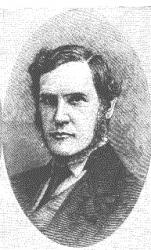Planning worship?
Check out our sister site, ZeteoSearch.org,
for 20+ additional resources related to your search.
- |
User Links
Person Results
James Quinn
1919 - 2010 Person Name: James Quinn (b. 1919) Author of "Forth in the peace of Christ we go" in Hymns for Celebration James Quinn (b. Glasgow, Scotland, April 21, 1919; d. Edinburgh, Scotland, April 8, 2010) was a Roman Catholic Jesuit priest who was ordained in 1950. As a consultant for the International Commission on English in the Liturgy, sparked by Vatican II, he has exerted influence far beyond his native Scotland. A collection of his hymn texts is available from Selah Publishing company.
Sing a New Creation
James Quinn
John Warrington Hatton
1710 - 1793 Person Name: J. Hatton (d. 1793) Composer (Attributed to) of "DUKE STREET" in Hymns for Celebration John Warrington Hatton (b. Warrington, England, c. 1710; d, St. Helen's, Lancaster, England, 1793) was christened in Warrington, Lancashire, England. He supposedly lived on Duke Street in Lancashire, from where his famous tune name comes. Very little is known about Hatton, but he was most likely a Presbyterian, and the story goes that he was killed in a stagecoach accident.
Bert Polman
John Warrington Hatton
Tony Alonso
b. 1980 Person Name: Tony E. Alonso, b. 1980 Composer of "AIKENHEAD" in RitualSong (2nd ed.) Tony Alonso has published several collections of liturgical music and his music appears in many hymnals throughout the world. He has an Bachelor of Music degree from Northwestern University and a M.A. degree in theology from Loyola Marymount University.
Tony Alonso
Adam M. L. Tice
b. 1979 Person Name: Adam M. L. Tice, b. 1979 Author of "Glorify the Lord by Our Lives" in RitualSong (2nd ed.)
Adam M. L. Tice
Ralph Vaughan Williams

1872 - 1958 Person Name: Ralph Vaughan Williams, 1872-1958 Arranger of "DEO GRACIAS" in Complete Anglican Hymns Old and New Through his composing, conducting, collecting, editing, and teaching, Ralph Vaughan Williams (b. Down Ampney, Gloucestershire, England, October 12, 1872; d. Westminster, London, England, August 26, 1958) became the chief figure in the realm of English music and church music in the first half of the twentieth century. His education included instruction at the Royal College of Music in London and Trinity College, Cambridge, as well as additional studies in Berlin and Paris. During World War I he served in the army medical corps in France. Vaughan Williams taught music at the Royal College of Music (1920-1940), conducted the Bach Choir in London (1920-1927), and directed the Leith Hill Music Festival in Dorking (1905-1953). A major influence in his life was the English folk song. A knowledgeable collector of folk songs, he was also a member of the Folksong Society and a supporter of the English Folk Dance Society. Vaughan Williams wrote various articles and books, including National Music (1935), and composed numerous arrangements of folk songs; many of his compositions show the impact of folk rhythms and melodic modes. His original compositions cover nearly all musical genres, from orchestral symphonies and concertos to choral works, from songs to operas, and from chamber music to music for films. Vaughan Williams's church music includes anthems; choral-orchestral works, such as Magnificat (1932), Dona Nobis Pacem (1936), and Hodie (1953); and hymn tune settings for organ. But most important to the history of hymnody, he was music editor of the most influential British hymnal at the beginning of the twentieth century, The English Hymnal (1906), and coeditor (with Martin Shaw) of Songs of Praise (1925, 1931) and the Oxford Book of Carols (1928).
Bert Polman
Ralph Vaughan Williams
David Evans
1874 - 1948 Person Name: David Evans (1874-1948) Harmonizer of "DUKE STREET" in Church Hymnary (4th ed.) David Evans (b. Resolven, Glamorganshire, Wales, 1874; d. Rosllannerchrugog, Denbighshire, Wales, 1948) was an important leader in Welsh church music. Educated at Arnold College, Swansea, and at University College, Cardiff, he received a doctorate in music from Oxford University. His longest professional post was as professor of music at University College in Cardiff (1903-1939), where he organized a large music department. He was also a well-known and respected judge at Welsh hymn-singing festivals and a composer of many orchestral and choral works, anthems, service music, and hymn tunes.
Bert Polman
David Evans
Keith Christopher
b. 1958 Person Name: Keith Christopher, b. 1958 Author of "We Go in Peace (Salgamos hoy)" in Santo, Santo, Santo
Keith Christopher
Georg Joseph
1630 - 1668 Adapter of "ANGELUS" in Psalter Hymnal (Gray) Born: Probably circa 1630, Breslau, Silesia (now Wrocław, Poland).
Died: Circa 1668.
A musician in the service of the Prince-Bishop of Breslau in last half of the 17th Century, Joseph collaborated published five hymn volumes with Johann Scheffler.
Sources
Erickson, p. 325
Stulken, p. 218
Music: ANGELUS
--www.hymntime.com/tch
Georg Joseph
William Henry Gladstone

1840 - 1891 Person Name: William Henry Gladstone, 1840-1891 Composer of "OMBERSLEY" in The Irish Presbyterian Hymnbook Born: June 3, 1840, Hawarden, Flintshire, Wales.
Died: July 4, 1892, Westminster, London, England.
Eldest son of British prime minister William Gladstone, William attended Eton College and read Greek and Latin at Christ Church College, Oxford University. A Member of Parliament for a total of 20 years, representing Chester for 3; Whitby, Yorkshire for 12; and East Worcestershire for 5. A singer and organist, he was well versed in musical history, especially the development of Anglican church music. He wrote on musical topics, and one of the views he expressed was that choral church services were to be deplored because "the choirs often discourage the congregations from singing." He wrote the anthems "Gracious and Righteous" and "Withdraw Not Thou", & chants, anthems, introits & organ voluntaries. His works include:
A Selection of Hymns and Tunes, 1882
--www.hymntime.com/tch/
William Henry Gladstone


 My Starred Hymns
My Starred Hymns


